The Origins of Evil
Outlook
|December 11,2023
When the fire threatens to raze us, there's just one tune pervading our mind, body, and soul: that morality isn't a choice as much as a privilege

ON June 18, 1961, a half-page ad appeared in a daily newspaper in New Haven, Connecticut. "We will pay you $4.00 for an hour of your time," read its headline. Conducted at Yale University, the "scientific study of memory and learning" required 500 men. The ad's bottom section contained a disclosure form, comprising an applicant's personal and professional details, addressed to professor Stanley Milgram. Hinged on a deceit-the study tested not "memory and learning" but obedience to authority-it sought to unravel the genocide's psychology: "Could it be that [Adolf] Eichmann and his million accomplices were just following orders?" wondered Milgram. "Could we call them all accomplices?"
Inspired by the trial of Holocaust perpetrator Eichmann-who, according to historian and philosopher Hannah Arendt, didn't resemble a vicious anti-Semite as much as a numb bureaucrat, someone embodying the "banality of evil"-Milgram began his experiment. It involved three participants: an Experimenter, a Teacher, and a Learner. The Experimenter controlled and administered the test. The Teacher, who had responded to the ad, delivered electric shocks to the Learner when he gave wrong answers to the word-pair questions. The Learner, however, an actor and a confederate sitting across a thin wall, received no shocks-his crying and pleading came from pre-recorded audio-a fact not known to the Teacher (the Subject). Every wrong answer demanded an incremental shock of 15 volts, ending in 450 volts, a lethal dose. As the jolts intensified, the Learner begged and sobbed and screamed. At 300 volts, he kicked the wall and stayed silent-forever.
このストーリーは、Outlook の December 11,2023 版からのものです。
Magzter GOLD を購読すると、厳選された何千ものプレミアム記事や、10,000 以上の雑誌や新聞にアクセスできます。
すでに購読者ですか? サインイン
Outlook からのその他のストーリー

Outlook
The Big Blind Spot
Caste boundaries still shape social relations in Tamil Nadu-a state long rooted in self-respect politics
8 mins
December 11, 2025

Outlook
Jat Yamla Pagla Deewana
Dharmendra's tenderness revealed itself without any threats to his masculinity. He adapted himself throughout his 65-year-long career as both a product and creature of the times he lived through
5 mins
December 11, 2025
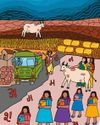
Outlook
Fairytale of a Fallow Land
Hope Bihar can once again be that impossibly noisy village in Phanishwar Nath Renu's Parti Parikatha-divided, yes, but still capable of insisting that rights are not favours and development is more than a slogan shouted from a stage
14 mins
December 11, 2025

Outlook
The Lesser Daughters of the Goddess
The Dravidian movement waged an ideological war against the devadasi system. As former devadasis lead a new wave of resistance, the practice is quietly sustained by caste, poverty, superstition and inherited ritual
2 mins
December 11, 2025

Outlook
The Meaning of Mariadhai
After a hundred years, what has happened to the idea of self-respect in contemporary Tamil society?
5 mins
December 11, 2025
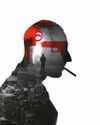
Outlook
When the State is the Killer
The war on drugs continues to be a war on the poor
5 mins
December 11, 2025
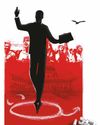
Outlook
We Are Intellectuals
A senior law officer argued in the Supreme Court that \"intellectuals\" could be more dangerous than \"ground-level terrorists\"
5 mins
December 11, 2025
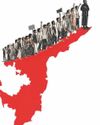
Outlook
An Equal Stage
The Dravidian Movement used novels, plays, films and even politics to spread its ideology
12 mins
December 11, 2025
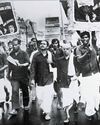
Outlook
The Dignity in Self-Respect
How Periyar and the Self-Respect Movement took shape in Tamil Nadu and why the state has done better than the rest of the country on many social, civil and public parameters
5 mins
December 11, 2025

Outlook
When Sukumaar Met Elakkiya
Self-respect marriage remains a force of socio-political change even a century later
7 mins
December 11, 2025
Translate
Change font size

